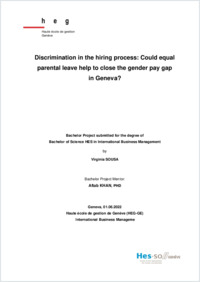
SONAR|HES-SO
SONAR|HES-SO regroupe les travaux de bachelor et master diffusables de plusieurs écoles de la HES-SO. Consultez cette page pour le détails.
En cas de question, merci de contacter les bibliothécaires de la HES-SO : bibliotheques(at)hes-so.ch
